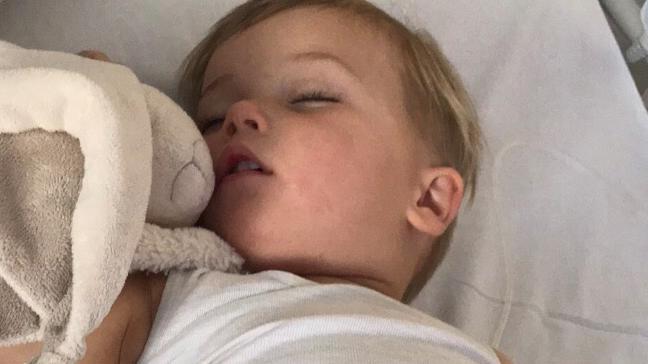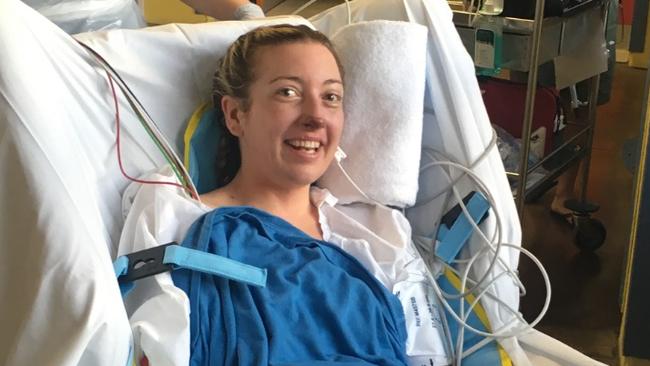Children in the UK are having their lives saved by a new Meningococcal B vaccine our government won’t fund
There is a vaccine for the Meningococcal B disease that’s killed two Australians this month and left many others in need of an organ transplant. It’s time our health system funded it.
Health
Don't miss out on the headlines from Health. Followed categories will be added to My News.
The number of cases of deadly Meningococcal B disease has halved in babies in Britain after it introduced a vaccination that is still not funded in Australia despite two recent deaths.
Babies in the UK began receiving a free meningococcal B vaccine in 2015 and a new study has shown cases in infants aged one or less have plunged by 42 per cent.
However, an Australian expert government committee has three times rejected a subsidy for the high cost vaccination.
News Corp wants this new evidence to be taken into account when the pharmaceutical company tries for a fourth time to get funding in November.
A subsidy for the vaccine is the only outstanding measure in News Corp’s successful No Jab, No Play campaign that has helped raise Australia’s immunisation rate to record levels.
The Meingococcal B vaccine costs up to $450 per child and is unaffordable for most families.
Four other strains of the disease are covered by a vaccine subsidised by the federal government.
Parents live in fear of the B strain which is fast and deadly, hard to diagnose and can lead to survivors losing their limbs and developing major organ failure.
A toddler and an elderly woman both from New South Wales died from Meningococcal disease in recent weeks and more than 101 Australians have contracted the infection so far this year, many had type B.
The family of toddler Lachlan Bell who was hospitalised for over two weeks after contracting the disease last year is pleading with authorities to provide a subsidy for the vaccination.

“It started with a fever, and Lachlan had a common cold as well but then he developed cold hands and feet, he had a stiff neck and didn’t like the light and got increasingly worse,” said his mother Claire Bell who is a nurse.
Lachlan was extremely weak for some time but appears to have escaped major health problems.
“We’re so lucky to have our little boy but to see another death makes us feel sick … it’s so frustrating to put a price on something like that,” she said.
ANTI-VACCINATION PARENTS FACE $15,000 HIT
BAN UNVACCINATED KIDS FROM CHILDCARE
Immunisation expert professor Robert Booy is pressuring the pharmaceutical company GSK to lower the price of the vaccine and says it would save the health system millions of dollars.
Sarah Joyce from Gosford, north of Sydney, lost four major organs, five toes and three fingers when she acquired Meningococcal W disease at the age of 30 in 2016.
She now requires a $150,000 a year feeding tube, has dialysis every second day and is waiting to have a kidney transplant.
On each occasion the Pharmasutical Benefits Advisory Committee (PBAC) has been unable to recommend the vaccine due to uncertainty about its effectiveness in a population wide program.

The Minister for Health has urged GSK to resubmit to the PBAC with any new evidence to address these issues.
It is understood that GSK intends to provide a new submission to the PBAC for consideration at its November 2019 PBAC meeting.
Should the vaccine be recommended by the PBAC, the Australian Government would move to list the vaccine on the National Immuniation Program as a priority.
“Too many lives are being lost, it shouldn’t matter about the cost,” Ms Joyce said.
The independent committee has said the price of Meningococcal B vaccine is too high.
A spokesman for Health Minister Greg Hunt said the minister has urged GSK to make a new submission for subsidy to the Pharmaceutical Benefits Advisory Committee.
Should the vaccine be recommended by the PBAC, the Australian Government would move to list the vaccine on the NIP as a priority, he said.


